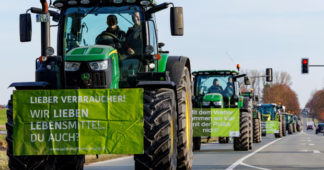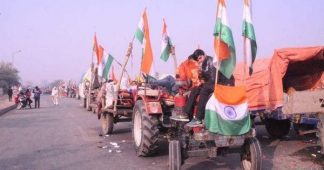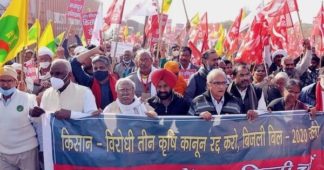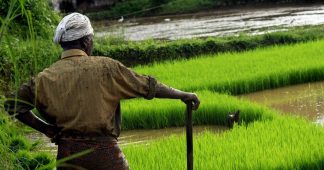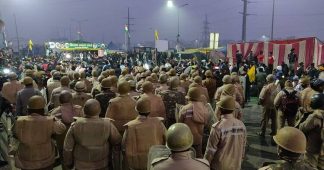The traffic light coalition government in Germany decided to cut subsidies to farmers and increase energy taxes while funding to imperialist wars goes uninterrupted
January 09, 2024
Farmers and trade unions across Germany are up in arms against the incumbent traffic light coalition government’s bids, announced in December, to cut down tax relief for agricultural diesel and also to cut an exemption from vehicle taxes for farming vehicles.
The protests, started by organizations such as the German Farmers’ Association (DBV) and the association “Agriculture Connects Germany” (LSV), included tractor rallies and roadblocks. On the evening of January 4, farmers blocked the vice-chancellor and economy minister, Robert Habeck, from disembarking from a ferry in northern Germany.
According to reports, succumbing to widespread protests, on January 4, the government hinted its willingness to continue the motor vehicle tax exemption for agricultural and forestry vehicles and also proposed a phased reduction of subsidy to agricultural diesel from 2024 to 2026. But the farmers’ unions remained dissatisfied and decided to step up their agitation from January 8, until the total cuts were reversed. A national demonstration was called for on January 15 in Berlin, in which transport unions are likely to participate.
The president of the German Farmers’ Association (DBV), Joachim Rukwied, stated, “The government’s assurances are inadequate. Both proposals for cuts envisaged by the traffic light coalition would have to be taken off the table completely.”
Earlier in November last year, the specially constituted Climate and Transformation Fund (KTF), created by the traffic light coalition government for climate action initiatives and some industrial subsidies, was deemed unconstitutional by the Constitutional Court, increasing the deficit in Germany’s 2024 budget.
In December, the coalition parties reached an agreement to supplement the additional deficit by cutting subsidies to the farmers and increasing energy taxes, generating widespread outrage. In the wake of the ongoing farmers’ protest, fearing backlash, the government is now planning to impose cuts in marine protection and fisheries support, by keeping some of the subsidies for the farmers intact.
The leftist MP Sahra Wagenknecht denounced the cuts, saying, “the traffic light’s budget compromise serves strong lobbies and money continues to be wasted in many areas—for example, in terms of equipment and weapons for Ukraine. At the same time, normal citizens… low earners and pensioners who can least resist, are burdened with rising costs, among other things, for heating, gas, and electricity.”
Currently, heavy rainfall and subsequent flooding have struck several German states hard. To take advantage of people’s outrage against the government, in the backdrop of the upcoming elections in east German states, far-right groups including the Alternative for Germany (AfD) have also expressed solidarity with farmers’ protest. Major farmers’ unions called out to their members to distance themselves from actions orchestrated or called by AfD and far-right groups.
On January 5, German Communist Party (DKP) leader Patrik Kobele expressed solidarity with the protesting farmers. In his statement in Unsere Zeit (UZ), he said that while the government is forcing the burden of the crisis on the working class, small businesses, craftsmen, and farmers, the war machine is still running and the arms industry is celebrating. There was a 40% increase in arms export from Germany under Olaf Scholz. “Our main task remains the struggle against the integration of large sections of the labor movement into the war and crisis course of the ruling class,” said Kobele. “We don’t just want angry farmers, but tractors against the course of war.”
We remind our readers that publication of articles on our site does not mean that we agree with what is written. Our policy is to publish anything which we consider of interest, so as to assist our readers in forming their opinions. Sometimes we even publish articles with which we totally disagree, since we believe it is important for our readers to be informed on as wide a spectrum of views as possible.
